Piles, also known as haemorrhoids, are swollen veins in the anal canal region. When in their normal state, they act as cushions to control the passage of stools. While the exact cause of piles is unknown, studies1 have shown that factors that increase pressure in the anal area during excretion are hugely responsible for piles.
If you’re experiencing symptoms like a burning sensation in the anal region while sitting or passing stools, it’s important to consult a doctor for proper diagnosis. Follow the treatment advised by your doctor. Along with the prescribed medicines or surgery, you’ll be asked to follow a healthy lifestyle and diet. Initial measures consist of increasing fibre intake, resting and drinking enough fluids to maintain hydration throughout the body. Medicated creams may be applied to the area, but their effectiveness can falter depending on the severity of your situation.
The exact cause behind the occurrence of haemorrhoids is still unknown. While it is difficult to pinpoint what causes piles accurately, there are several factors that may contribute to piles:
Other factors that could equally contribute to the occurrence of piles could be:
Did You Know?
I read about a study4 in Nigeria that highlighted how traditional plants might be beneficial in the treatment of piles. The study found that 25 different plants from 19 families were used, with the most common ones being from the Fabaceae family. Various parts of these plants, such as leaves, barks, roots, etc., may have anti-inflammatory properties to soothe piles naturally. Many of these plants are rare and wild. Hence, more research is needed to protect them, standardise their use and research their effectiveness.
Dr. Nayana Shetty, MBBS, MD

Warm baths can help soothe the irritation that haemorrhoids cause6. Try using a sitz bath. A Sitz bath is a method that uses a small plastic tub that fits over a toilet seat so you can just immerse the affected area. Betadine solution or other antiseptic solutions advised by a doctor can be added to this water.
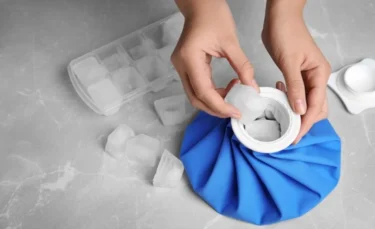
Apply ice packs or cold compresses to the anal area to relieve swelling for a minimum of 15 minutes at a time. For large, painful haemorrhoids, cold compresses can be an extremely effective means of dealing with the pain7.
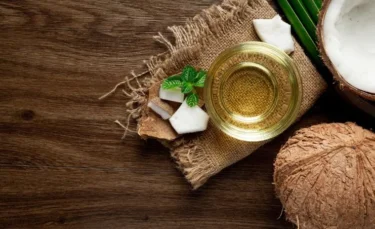
According to research8, coconut oil has strong anti-inflammatory properties that may reduce inflammation and swelling. It has analgesic (pain-relieving) properties that can help to relieve discomfort caused by the haemorrhoids. It also has antibacterial properties that may help with the symptoms of hemorrhoids.
A natural blend consisting of honey, olive oil and beeswax may offer relief for piles. Research9 suggests that this mixture might significantly reduce symptoms like bleeding, itching, and pain, providing a safe and effective treatment option.
Dr. Nayana Shetty, MBBS, MD

Using toilet paper after a bowel movement can irritate existing haemorrhoids. Moistened wipes help keep you clean without causing further irritation. You can also use wipes with soothing anti-haemorrhoid ingredients, such as witch hazel or aloe vera10.

Exercising at home can be a great way to manage the symptoms of haemorrhoids11. Doing regular pelvic floor exercises may offer long term benefits for piles. Strengthening your pelvic floor muscles can help empty your bowel without putting much strain.

Making a conscious effort to relax and manage stress effectively has an indirect but important effect in regulating good bowel habits. Getting enough sleep at night also helps with the same while maintaining good digestive health. This, in turn, promotes smooth bowel passage12.

This goes without saying, but drinking enough water and other healthy liquids like fruit juices aids in making your bowel less dry13. When your body is well-hydrated, your digestive health starts becoming better, thus helping you put less strain on your bowel movements.
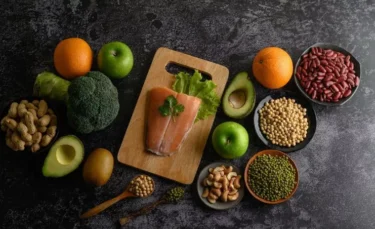
Consuming a balanced diet with ample insoluble as well as soluble fibre will help you with regular bowel movements. Insoluble fibre adds bulk to your stool, making it less likely for you to strain while passing stool14. Fibre is also known to promote a healthy gut.
Drumstick tree or moringa might also be a helpful remedy for piles. Moringa may help reduce inflammation and manage symptoms of piles15. However, since it’s a traditional remedy, more research is needed to fully understand its effectiveness and benefits.
Dr. Nayana Shetty, MBBS, MD
Also Read: Food for Piles: Best Food Options and Foods to Avoid
You should consult a doctor without delay if you notice any of the symptoms mentioned earlier. Some signs of piles can also resemble those of more serious conditions like colorectal cancer. Therefore, an early diagnosis from a doctor is important. Report to your doctor if:
Also Read: Simple Home Remedies for Frequent Urination
Drinking a lot of fluids and a fibre-rich diet, taking a warm bath to soothe itching and pain, applying topical ointments prescribed by a doctor, exercising and keeping the bottom area dry will all act as a catalyst to help you relieve piles faster. It is important to consult a doctor and follow the treatment advised.
Dairy items like milk and cheese, white flour, processed meat, fried food, spicy food items and red meat should be avoided at home and outside if you have started showing symptoms of piles16. Basically, food that increases the chances of bloating and constipation should be avoided.
Your doctor will advise you on the best medicines based on your condition. It may include some medicines to narrow swollen veins, some painkillers and medicines to manage digestive issues like constipation if present.
Yes, haemorrhoids can be both painful and itchy. Piles are swollen and distended veins in the anus and lowest part of the rectum. Haemorrhoids are traditionally associated with prolonged sitting on the toilet combined with straining during bowel movements. It is also common during pregnancy and usually resolves after childbirth.
Disclaimer: The information provided here is for educational/awareness purposes only and is not intended to be a substitute for medical treatment by a healthcare professional and should not be relied upon to diagnose or treat any medical condition. The reader should consult a registered medical practitioner to determine the appropriateness of the information and before consuming any medication. PharmEasy does not provide any guarantee or warranty (express or implied) regarding the accuracy, adequacy, completeness, legality, reliability or usefulness of the information; and disclaims any liability arising thereof.
During summers, temperatures rise and the scorching heat can make us feel completely drained of energy. Ignoring the effects of extreme heat may put our health at risk1.
In the summer, many of us feel dehydrated and lack energy, which are common signs that indicate that we have been affected by heat. That’s why it’s crucial to take extra care of ourselves during the hotter months. By adopting health habits, such as eating well and changing our lifestyle, we can protect our bodies from the summer heat2.
Your body heat can increase because of both internal and external factors. For example, spending too much time out in the sun can cause your body temperature to rise significantly. It can also increase because of heavy exercise or moving around more than usual.
For women, body heat may rise because of conditions like perimenopause and menopause, during which they may experience hot flashes or night sweats. Another significant but uncommon reason why your body heat may rise is due to the use of certain medications3.
Here are the most common causes of increased body heat2,3:
Oranges can reduce body heat! Oranges are believed to be rich in water content that makes them a potential food to reduce body heat. They are also full of fibre, which makes them a great option for those looking to lose weight and still feel full.
Dr. Siddharth Gupta, B.A.M.S, M.D (Ayu)
Normal body temperatures for different demographics3,4:
It is important to understand the symptoms that indicate the body is under stress or discomfort. These may include burning sensation in the eyes, mouth ulcers, indigestion, constipation, sleeplessness, acidity, and some may even experience rapid heart rate.
Let’s understand the top 10 foods to help reduce body heat and enjoy the summer season:

The best drink during summers. Coconut water has cooling properties that can help with the scorching summer months. It has electrolytes which can help keep the body hydrated and regulate body temperature. Coconut water is naturally sweet and is often enhanced by its malai content (tender coconut flesh). You can drink the water and apply the left-out malai on the face, to give a cooling effect on the skin5.
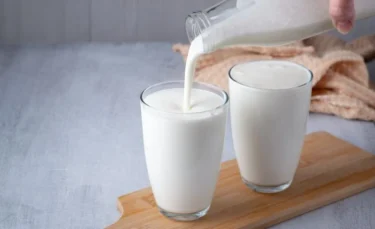
This healthy drink contains essential probiotics, vitamins, and minerals to keep our bodies cool even in extreme heat. Drinking buttermilk daily or maybe twice a day can help to cool down the body5.
Other than buttermilk, a traditional Indian drink, jaljeera is believed to be very helpful to cool down the body. Mint is one of the constituents of jaljeera which is believed to provide the cooling effect.
Dr. Smita Barode, B.A.M.S, M.S.
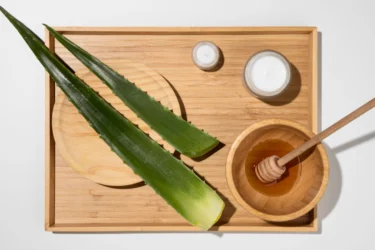
Aloe vera is known as a natural cooling agent as it helps reduce body heat internally and externally. The gel can be applied to the skin to experience the cooling effect. Alternatively, you can mix the aloe vera gel extract with cucumber or mint and blend it to form a smooth mixture – drink it for an internal cooling boost7.
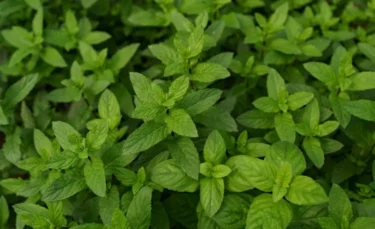
Mint is considered one of the most commonly consumed herbs in India. It is usually added to food or drinks to help neutralise excess body heat and regulate body temperature by providing a cooling effect. Adding mint to curd, buttermilk, or lemon water can add more benefits. You can also make mint chutney, which is one of the most popular chutneys in nearly every Indian households8.
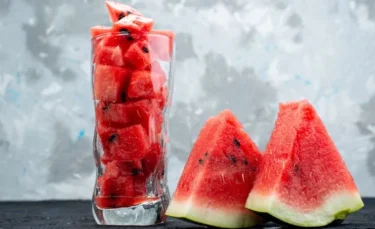
In addition to mangoes, watermelon is another fruit that is often eaten during the summer season in India. Usually, the water content in watermelon is as high as 92%, which will help prevent dehydration and keep the body cool. If consumed regularly, it may help control body heat9.
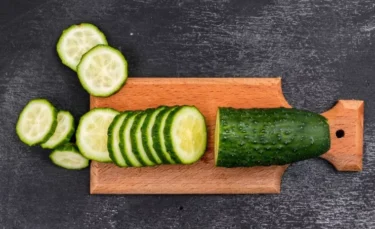
Just like watermelons, cucumbers also have a high amount of water content of 95%. They are also high fibre, which can help relieve constipation, one of the common problems during summers when body heat increases. Cucumber is not only commonly used in salads, but also in facial treatments and to soothe tired eyes. Light, refreshing, and low in calories, cucumbers can be a perfect summer partner9!
Also Read: 8 Health Benefits Of Cucumber That You Should Know

Yes, you read it right! Peppers can help lower your body temperature. According to research10, capsaicin the active ingredient found in chili peppers, produces a cooling effect by sending a message to the brain indicating that the body is overheating and sweating more than usual., Interesting, isn’t it?

Research9 has shown that lemon being rich in Vitamin C can help lower body temperature. It can also moisturise and oxygenate the body, to help improve energy levels and feel fresh during summers. To make lemon juice, squeeze the juice of half a lemon, add a pinch of salt and ½ tsp of sugar (depending on your taste) and mix it with cold water. These ingredients can work as a natural electrolyte for your body.
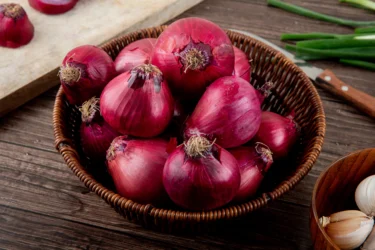
It may come as a surprise, but even onions have a natural cooling effect on the body. Onions are rich in quercetin, which may act as an anti-allergen and also be beneficial to protect against heat-related issues like sunstroke. This is one of the reasons why our grandmothers often made a traditional mix of onion and raw mango during the summer months. You can have onions raw by adding lemon and a little bit of salt or combine them in salads, raitas and sandwiches. Onions are a readily available vegetable with impressive benefits11.
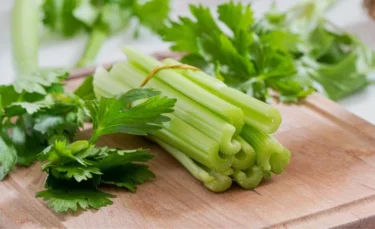
Celery contains 90% water and important nutrients, which can keep you cool in summer. Celery is also high in sodium, potassium, iron, magnesium, calcium, and zinc9.
Malabar spinach, a variety of spinach found majorly in Karnataka, is believed to give a cooling effect to the body. It can be cooked and eaten with chapati. It is also believed to be rich in Vitamin A and C, folic acid and calcium.
Dr. Rajeev Singh, BAMS
Yes, body heat can lead to several health problems and may affect overall performance. You will likely experience increased irritability, loss of concentration, and sleeplessness. In serious cases, you may have heat cramps, heat exhaustion, heatstroke, and hyperthermia.
The best and quickest way to reduce body heat is by drinking water. You can also try taking a cold bath and rest.
If your body temperature seems to be high for an undetermined reason or you are not cooling down even after trying to hydrate, consult with a doctor. Additionally, in case you experience excess body heat and are over 65 years of age, or you have an underlying medical condition, or if you are pregnant or nursing, contact a doctor immediately.
Disclaimer: The information provided here is for educational/awareness purposes only and is not intended to be a substitute for medical treatment by a healthcare professional and should not be relied upon to diagnose or treat any medical condition. The reader should consult a registered medical practitioner to determine the appropriateness of the information and before consuming any medication. PharmEasy does not provide any guarantee or warranty (express or implied) regarding the accuracy, adequacy, completeness, legality, reliability or usefulness of the information; and disclaims any liability arising thereof.
Moringa is commonly known as the ‘drumstick tree’ and is found mostly in Asia, Africa, and South America. Moringa tree is also known as the ‘miracle tree’ and there is a reason why. The leaves, fruit, sap, oil, roots, bark, seeds, pod and flowers of the tree have valuable medicinal properties 1,2.
The drumstick leaves, commonly known as moringa leaves, are nutritionally very rich, surpassing carrots, oranges, and even milk in terms of nutritional value. The leaves find many ways to be used in Indian cuisine as they are versatile and can be easily incorporated by adding them to juices or smoothies and using them as stir-fried vegetables are the most common ways in which they are eaten3. When consumed in their natural form, moringa leaves usually have no side effects1. Many South Indian households also use moringa leaves as part of their food preparations2,3.
Moringa leaves are rich in vitamins A, C, B1 (thiamin), B2 (riboflavin), B3 (niacin), B6, and folate. They are also rich in magnesium, iron, calcium, phosphorus, and zinc2,5.
One cup of moringa leaves will contain 2 grams of protein, magnesium (8 percent of the RDA), Vitamin B6 (19 percent of the RDA), Iron (11 percent of the RDA), Riboflavin (11 percent of the RDA), and Vitamin A (9 percent of the RDA)2.
Moringa leaves are rich in amino acids, which are the building blocks of proteins. There are around 18 types of amino acids found in moringa and each amino acid makes an important contribution to our wellbeing2.
Inflammation is the body’s natural response to pain and injury. Moringa leaves are anti-inflammatory in nature due to the presence of isothiocyanates and the niazimicin in the leaves may provide benefits against the development of cancer cells. Inflammation is the root cause of many diseases like cancer, arthritis, rheumatoid arthritis, and many autoimmune diseases. When we have an injury or infection, increased inflammation can be found in the body.
Although, inflammation is a protective mechanism against trauma, it can increase in the body because of an erratic and poor lifestyle, along with unhealthy diets. Long-term inflammation may lead to chronic health issues and eating moringa leaves may help to reduce inflammation2.
Moringa leaves have anti-oxidative properties and protect against the damaging effects of free radicals present in the environment. The damage caused by free radicals is responsible for many chronic diseases like type 2 diabetes, heart problems, and Alzheimer’s Disease.
Moringa leaves are rich in vitamin C and beta-carotene that may act against free radicals. Moringa also has quercetin which is an antioxidant that helps to lower blood pressure. Another antioxidant that is present in moringa leaves is chlorogenic acid which helps to stabilise blood sugar levels post meals2,3.
Research4 suggests that taking 7g of moringa leaf powder regularly for three months in women may show a significant increase in blood antioxidant levels.
Sustained high blood sugar levels lead to the development of diabetes in individuals. Diabetes, in turn, can cause heart problems and organ damage in the body. Moringa leaves may help stabilise blood sugar levels due to the presence of isothiocyanates and by keeping blood sugar levels in in the normal range, complications may be avoided2.
Based on my medical experience, I want to emphasise the potential benefits of Moringa leaves for eye health. These leaves contain high concentrations of vitamin A, which play a vital role in warding off night blindness and maintaining optimal vision. Regular consumption of Moringa oleifera leaves, either as whole leaves or in powdered form, may beneficial in supplementing the essential vitamin A needed to support healthy eyes and potentially delay the onset of conditions like cataract.
Dr. Siddharth Gupta, B.A.M.S, M.D (Ayu)
Apart from oats, flaxseeds, and almonds, moringa leaves may be a dependable herbal supplement against high cholesterol. Cholesterol is the major contributor to heart diseases, and research2 suggests that eating moringa leaves may show considerable improvement to high cholesterol levels, and thereby protect against the risk of heart disease. Pregnant women usually experience higher levels of cholesterol, which can in turn increase the risk of developing gestational diabetes during their term. What is gestational diabetes? It is a type of diabetes that is first detected in pregnant women who did not have diabetes before they were pregnant. Moringa leaves can certainly be included in the diet for gestational diabetes under medical guidance.
Those who have tuberculosis may benefit from moringa leaves as they reduce the negative effects of anti-tubercular drugs. Moringa leaves may accelerate the repair of liver cells as these leaves have a high concentration of polyphenols that may protect against oxidative damage to the liver and may even reduce oxidative stress by activating certain proteins.
The liver is the site of blood detoxification, fat metabolism, and nutrient absorption and can only function properly if the liver enzymes are in normal levels. According to this study2, moringa leaves stabilise these liver enzymes4.
In many parts of the world, arsenic contamination is a common problem. Arsenic has found its way in our systems through many food items, particularly rice.
Long-term exposure to this element can lead to the development of cancer and heart disease. Research7 on laboratory animals have shown that moringa leaves are effective against arsenic toxicity.
Moringa leaves may be beneficial against digestive disorders. Adding moringa leaves to the diet may help individuals who have constipation, bloating, gas, gastritis, and ulcerative colitis.
Studies2 have shown that these leaves may have antibiotic and antimicrobial properties which may suggest to help in digestive disorders. The high amount of B vitamins in the leaves may also help in improving digestion.
Moringa leaves are rich sources of calcium and phosphorus and these elements are needed for bone health. Since moringa leaves are considered to be anti-inflammatory nature, they may help heal damaged bones.
Research8 shows that moringa may help with osteoporosis and also strengthen bones and teeth.
Moringa leaves may have antiseptic properties to fight off bacterial infections. They may also be beneficial towards wound healing, such as in cases of bruises, minor cuts, and burns as they may reduce the clotting time1.
Moringa leaves for pregnancy can be beneficial due to their nutrient-rich composition, potentially supporting the health of both the expectant mother and the developing baby. In traditional Ayurvedic medicine, moringa leaves were used to increase lactation in nursing mothers. Since they are a rich source of protein, important vitamins, and essential nutrients, consuming moringa leaves may be beneficial for the health of the mother and the baby1,2.
Moringa leaves increase fat burning in the body, which helps in maintaining weight loss without depleting energy reserves. Consuming moringa may help reduce cravings and boost metabolism. They may also lower cholesterol by acting as an anti-obesity agent2.
Due to an abundance of antioxidants and nutrients, moringa leaves may improve the health and appearance of skin and hair, providing a supple texture to skin and shine to the hair. The antioxidants present in moringa leaves reduce the appearance of fine lines and wrinkles on the skin. Moringa consists of around 30 antioxidants2.
Moringa can be applied to the scalp to help reduce dandruff and add strength and bounce to dull, lifeless hair. Moringa leaves applied on the skin may be beneficial for acne-prone skin and are part of many cosmetics as they improve the skin tone and add a glow due to their purifying nature and therapeutic properties. However, more research is required to establish these benefits1,3.
Research2 suggests that many nervous disorders show positive results with the supplementation of moringa leaves.2 These leaves can be helpful to support brain health by working as neuro-enhancers. The high concentration of vitamins E and C slow down neural degeneration and help improve brain function. Those who have a migraine or suffer from recurring headaches may benefit from eating moringa leaves regularly. These leaves also work as mood stabilisers as they regulate the production of neurotransmitters like serotonin, dopamine, and noradrenaline which are important for memory, mood, and for stimulus-response3.
Moringa leaves are considered natural cleansers and may help to detoxify the body and increases immunity against various infections. They also increase the energy levels in the body2.
Did you know that fresh Moringa oleifera leaves are not only packed with nutrients but may also provide several health benefits? They contain about 6.7 grams of protein for muscle health, 1.7 grams of fats, 12.5 grams of carbohydrates for energy, and 0.9 grams of fiber for digestion. Adding these nutrient-rich leaves to your diet can be a great way to boost your overall nutrition intake and support a healthy lifestyle.
Dr. Rajeev Singh, BAMS
Also Read: Curry Leaves (Kadi Patta): Uses, Benefits, Side Effects and More!
Over the years, I have observed that moringa leaves are truly remarkable. They contain not only 9 essential amino acids but also 7 non-essential amino acids, making them an exceptional source of protein. This unique combination of amino acids found in moringa leaf powder can have numerous benefits for your overall health and well-being. Adding moringa leaves to your diet can be a great way to ensure you’re getting a wide range of essential nutrients.
Dr. Smita Barode, B.A.M.S, M.S.
Moringa leaves are a powerful source of nutrition and are anti-inflammatory in nature. Their antioxidative properties combined with their cellular-health protective properties make them a new ‘superfood’. They help suppress the production of inflammatory enzymes and may lower sugar levels. Consider making moringa a regular part of your diet to help reap valuable health benefits with the guidance from a doctor1,2.
Also Read: Betel Leaves: Uses, Benefits, Side Effects By Dr. Smita Barode
Studies have shown that consuming moringa every day may lead to modest reductions in blood sugar and cholesterol levels. Moringa leaves are highly nutritious and consuming them on a regular basis may be highly beneficial for people who are lacking in essential nutrients.
You can take moringa and its products on its own. You may take it with other food, or on its own – it’s entirely up to your preference but a doctor’s advise is recommended.
You may not see positive results instantly after consuming moringa. You may need to take moringa for at least a month or two to see some results. It’s important to share any side effects with your local doctor or a nutritionist to help you manage your intake of moringa.
Moringa tea is an herbal tea made by steeping the moringa leaves in pure hot water. This tea can also be made using moringa leaf powder and tea bags. It is naturally caffeine-free and you can consume it any time of the day.
Moringa is good, showing a variety of health benefits. It is rich in essential vitamins, minerals, and amino acids, which can help boost energy, support immune function, and may provide overall nutrition. Moringa is also known for its potential anti-inflammatory and antioxidant properties.
Moringa may offer numerous potential benefits for women, including improved nutrition, increased energy, and support for bone health due to its rich mineral and vitamin content. It may also help address anemia and offer anti-inflammatory properties, contributing to overall well-being. However, it’s essential for women to consult a doctor before adding moringa to their diet, particularly during pregnancy or while nursing.
Moringa may offer several potential benefits for men, such as improved vitality, enhanced energy, and support for overall well-being due to its rich nutritional profile. It may also aid in addressing specific health concerns, but consulting with a healthcare professional before incorporating moringa into your diet is advisable.
Moringa leaves may be beneficial for weight loss due to their low-calorie, nutrient-rich nature, which can help support appetite and weight management. When added to a balanced diet and exercise routine, this can be a comprehensive approach to sustainable weight loss. However, please consult with your healthcare provider before adding moringa leaves to your diet.
Moringa leaves may offer beneficial properties for the eyes, as moringa is a valuable source of vitamin A. Vitamin A is essential for maintaining optimal eye health and may help prevent night blindness and cataracts.
Disclaimer: The information provided here is for educational/awareness purposes only and is not intended to be a substitute for medical treatment by a healthcare professional and should not be relied upon to diagnose or treat any medical condition. The reader should consult a registered medical practitioner to determine the appropriateness of the information and before consuming any medication. PharmEasy does not provide any guarantee or warranty (express or implied) regarding the accuracy, adequacy, completeness, legality, reliability or usefulness of the information; and disclaims any liability arising thereof.
Hairstyle, colour, and length of hair play an essential role in people’s self-perception and physical appearance. Hair greying is one of the initial and most noticeable signs of human ageing. Hair greying, also known as canities, is a process of chronological ageing that affects people regardless of their gender or race. The term premature greying is used when greying occurs before the age of 20 in Caucasians, before 30 in Africans, and before 25 in Asians1.
Premature hair greying (PHG) or canities has a considerable detrimental impact on the affected individual’s appearance and self-esteem, considering the important function of hair in day-to-day social life. It is often thought of as a sign of old age and loss of health.
Did You Know?
Melanocytes are cells within each hair follicle that produce two basic pigments called pheomelanin or eumelanin, according to your DNA. Eumelanin is mostly present in brown and black hair, whereas pheomelanin is found in red and blond hair. The pigments produced in scalp hair degrade more slowly than the melanin that colours the skin. This allows the hair to maintain its colour as it grows for an average of 3.5 years2.
Grey hair develops as the number of melanocytes decreases. But the time when those cells begin to decrease varies from person to person. Here are some causes for hair greying:
Specific genes related to hair greying have been identified. One study3 identified the gene responsible for controlling, producing and storing melanin. It was found that those with PHG had a family history of PHG and had a genetic tendency to develop allergic diseases like asthma or eczema.
Individuals who are overweight or obese are more likely to develop grey hair4.
It was found in a study5 that smokers were at a higher risk of developing premature hair greying than nonsmokers. Although the mechanism behind this could not be found, it was suggested that smoking could increase oxidative stress, which can damage melanin-producing cells.
Stress can speed up the greying process. Stresses that are responsible for a fight-or-flight response might deplete the reserve of stem cells present in hair follicles that can be transformed into pigment cells when new hairs form6.
It was observed in a study7 that a deficiency of vitamin B12 can lead to PHG, which can be reversed when the vitamin is supplemented. Dairy products and meat are common natural sources of vitamin B12. This explains why a vegetarian diet could be a reason for developing PHG. It also might be difficult for older persons to absorb vitamin B12 through digestion.
According to a study1, it was found that diseases like vitiligo and alopecia areata can lead to premature greying. Vitiligo develops when cells that produce melanin stop functioning or die, causing loss of skin colour in patches over the body that commonly grow over time. In a few cases, it also leads to loss of hair colour. In alopecia areata, there can be a sudden loss of colour of hair, which might lead to more noticeable grey hair.
Other conditions that cause hair greying are:
Frequently, patients in their late 30s and 40s express concerns regarding premature greying. In such circumstances, counselling is necessary to educate them that greying is a distinctive aspect of ageing, and we must embrace it. In such instances, available safe colouring options can be considered since reversing natural hair colour may not be feasible.
Dr. Arpit Verma, MBBS MD (Pharmacology)
The average age of onset of premature hair greying ranges from 2 to 22 years, with the earliest age of onset being 2 years.
Certain remedies are known to stimulate pigmentation of hair. These preparations help restore the natural hair colour and may prevent further greying. Some remedies for dealing with grey hair are:
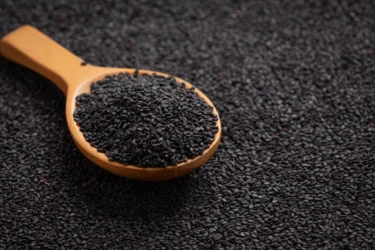
Sesame seeds, especially the black sesame, are known to blacken the hair9. Hence, they can be applied to white hair. Eating some black sesame seeds twice a week may help to slow down or even reverse the hair greying process.
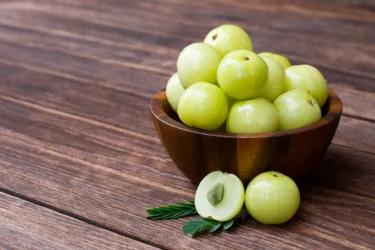
Amla enriches hair pigmentation. Dried fruit of amla and coconut oil can be boiled together till they get charred and used for hair greying. You can massage your hair with this amla oil and drink amla juice regularly to help control the premature greying of your hair.
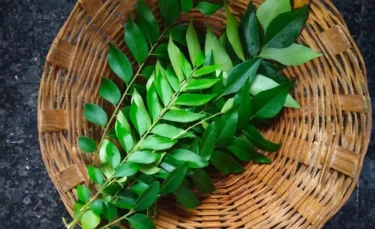
Using curry leaves is considered beneficial in traditional practices for preventing greying. Curry leaves crushed into a paste when mixed with yoghurt can be applied on hair twice a week for potential benefits.
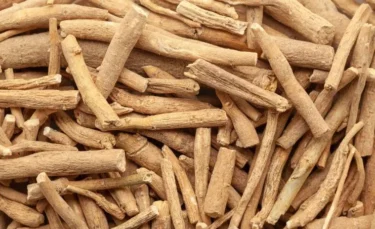
Ashwagandha is traditionally believed to improve blood circulation and help delay premature hair greying. Ashwagandha root powder, along with Brahmi powder, may be formed into a paste and used as a mask. This mask can be massaged on the scalp and washed later for benefits. Consuming ashwagandha tea may also be supportive.
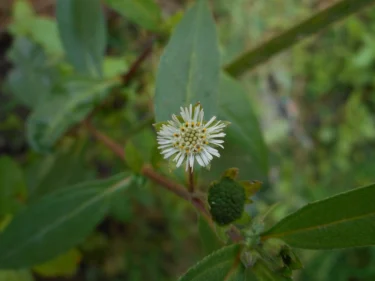
Bhringraj (Eclipta alba) is traditionally known as a “king of herbs” for hair health10. Leaves of Bhringraj may be soaked in any oil overnight, and this oil may be applied to hair.

Hibiscus contains vitamins C and A and iron. Paste of its flower, along with any oil when applied to hair, may help in managing grey hair by blackening the hair.
Asking a dermatologist or trichology expert for assistance is the optimal approach to managing premature greying of hair, as identifying and tackling the root cause is crucial. Home remedies may not be universally successful in treating every case of greying.
Dr. Arpit Verma, MBBS MD (Pharmacology)
Early greying of hair can be treated by obtaining a proper diagnosis and treatment plan.
Also Read: Best Home Remedies for Hair Growth
Premature greying of hair can have a negative impact on young people’s self-esteem, particularly on those with darker hair types, due to the easy sight of grey hair. Therefore, long-lasting and efficient management of grey hair is essential. Today, there are several home remedies like oak galls, barley, onion juice, etc., that are known to be effective in dealing with grey hair.
Even with the proper understanding of the causes of grey hair, the exact reason for its premature onset is not well studied. Hence, satisfactory management for its reversal remains indescribable as of today.
Also Read: Home Remedies To Help Reduce Dandruff Naturally
The pigment called melanin, which gives colour to the skin and eyes, is also responsible for determining the hair’s colour. Hair colour is determined by the quality and combination of melanin.
Grey hair is melanin-depleted hair, whereas white hair is completely devoid of it. This is partly due to a decrease in the number of stem cells that mature into melanin-producing cells. The cells may become worn out, damaged, or lose the support systems that are responsible for keeping them functioning. Genes play a role in melanin production since they help regulate it. There are multiple causes for developing PHG, such as a poor diet, genes, vitamin deficiencies, obesity, smoking, stress and some diseases.
Natural and synthetic hair dyes or colours are available. Indian gooseberry, false daisy, and henna are popular natural colours that are usually safe to use but necessitate frequent touch-ups due to weak colourants. There are two types of synthetic hair dyes- oxidative (use an oxidising agent like hydrogen peroxide to produce hair colour) and non-oxidative (do not contain an oxidising agent)
Deficiencies in vitamins like B12, biotin, folic acid, and vitamin E may contribute to premature hair greying. A doctor can guide appropriate supplementation.
Compounds like calcium pantothenate, green tea extract, phytoestrogens, and para-aminobenzoic acid may be taken orally under a doctor’s guidance to manage grey hair.
Disclaimer: The information provided here is for educational/awareness purposes only and is not intended to be a substitute for medical treatment by a healthcare professional and should not be relied upon to diagnose or treat any medical condition. The reader should consult a registered medical practitioner to determine the appropriateness of the information and before consuming any medication. PharmEasy does not provide any guarantee or warranty (express or implied) regarding the accuracy, adequacy, completeness, legality, reliability or usefulness of the information; and disclaims any liability arising thereof.
A variety of human skin colours are evident across the globe, ranging from the very pale to very dark skin complexion. There are several conditions related to skin pigmentation over this spectrum of skin tones, resulting in problems ranging from hypopigmentation (patches of skin that are lighter than your actual skin tone) to hyperpigmentation (patches of skin that are darker in colour than the surrounding skin)1.
Skin hyperpigmentation occurs when melanin, a pigment that is responsible for imparting colour to the skin, is overproduced in certain areas of the skin. It is important to have a complete understanding of the causes of this condition and the management strategies3.
Hyperpigmentation can be caused by several factors like:
These have an external cause or origin and include:
These have an internal source or origin and include:
Deficiencies of certain vitamins like folic acid, vitamin B12, niacin, vitamin A, tryptophan deficiency, and kwashiorkor (a type of malnutrition due to protein deficiency in the diet) may contribute to hyperpigmentation3.
Studies4 conducted on animals have shown that the use of aloe vera leaf extract, specifically its active compound ‘aloin’, can lead to skin lightening by restricting melanin formation. As a result, aloe vera gel may be employed to alleviate skin hyperpigmentation.
Dr. Siddharth Gupta, B.A.M.S, M.D (Ayu)
Different types of hyperpigmentation and their symptoms include:
Home remedies for hyperpigmentation may help improve the appearance of dark skin patches. Some remedies include:
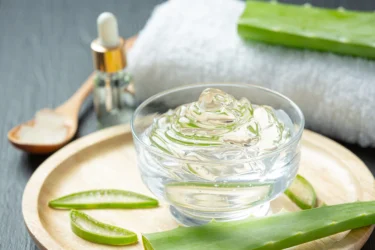
The gel of this plant is used to manage many skin conditions. It may be useful to reduce hyperpigmentation of the skin. Aloesin is the active ingredient of aloe vera and can potentially control an excess of melanin production and skin hyperpigmentation6. To obtain beneficial effects, you can apply aloe vera gel directly to the affected area. You can also put aloe vera gel in your homemade face masks.

It is known for its antioxidant and anti-inflammatory activities. Green tea has potential skin-lightening effects and may help lighten hyperpigmentation. In one study6, green tea was also found to be effective in preventing skin redness caused by ultraviolet (UV) radiation. To use green tea for skin, you can make a green tea face mask or put green tea in your homemade mask recipes.
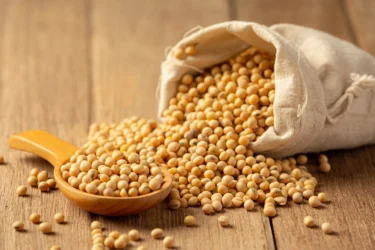
This remedy is an effective skin-lightening agent. Soybean is helpful in post-inflammatory hyperpigmentation due to acne. It is also effective in photodamage (changes in the appearance of skin due to UV radiation), facial hypermelanosis (altered facial skin pigmentation), and melasma6. You can add soy to your diet to get the much-needed benefits. Sipping on soy milk is a good option.
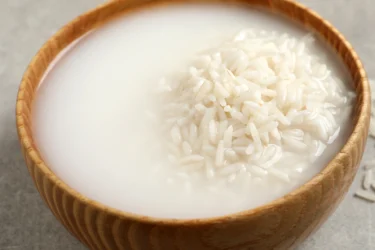
This is one of the essential ingredients in several Asian skin and hair treatments. The gel and cream formulations of rice water exhibit skin lightening effect. Rice water may be a helpful remedy for dealing with hyperpigmentation6. There are several ways through which you can make use of rice water.
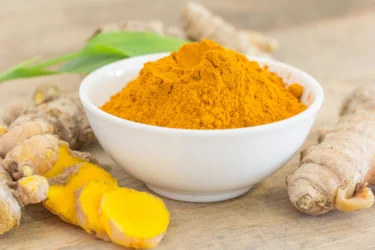
This home remedy may also be beneficial in managing hyperpigmentation7. To use turmeric for skin, you can make a turmeric face mask. To make the facemask, you can mix small amounts of turmeric, honey, and Greek yoghurt and apply it to your face. You can keep the mask for 15 minutes and then wash it off with water.
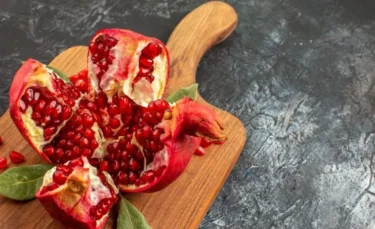
Rich in antioxidants, pomegranate may help reduce pigmentation2. To use pomegranate, you can crush a few seeds and use it as an exfoliating mask. Make sure to massage gently as it might irritate the skin. You can also use pomegranate skin oil. You should apply the oil only after cleansing and toning but before moisturising.

The oil obtained from grape seeds is rich in vitamin E and C, potent antioxidants. The antioxidant benefits are useful for dealing with hyperpigmentation8. To use grape seed oil, you can:
Research4 has demonstrated that soy contains fatty acids and isoflavones that hinder melanin production (a pigment responsible for skin colour). Soy-based skincare products are proven safe and effective in reducing hyperpigmentation, with noticeable skin lightening results typically seen after 12 weeks of twice-daily use. Prolonged daily use over 7 months does not lead to adverse effects and the depigmentation effects are reversible. You may therefore use soy-based products to reduce hyperpigmentation.
Dr. Rajeev Singh, BAMS
Also Read: Home Remedies to Keep Dark Circles Away!
You should consult your dermatologist (skin and hair specialist doctor) when you notice symptoms like:
Also Read: Natural Home Remedies for Blood Clots
At times, extra melanin is produced by the skin, resulting in dark spots or patches that contrast with the surrounding skin. Hyperpigmentation is a common skin condition that can, however, make one self-conscious. The causes of hyperpigmentation can be external and internal. Some of the home remedies that can be used to manage hyperpigmentation include aloe vera gel, green tea, soy, rice water, turmeric and pomegranate. However, you must visit a doctor if you notice red, itchy, or painful skin, skin that feels hot on touching, or bleeding or pus discharge from the hyperpigmented skin.
Also Read: Simple Home Remedies For Skin Allergies and Rashes
Hyperpigmentation is a common condition that results in some areas of the skin being darker than other areas. The word ‘hyper’ means more, and ‘pigment’ means colour.
Other treatment options for hyperpigmentation include pigmented lesion laser, cryotherapy, chemical peels, and laser skin resurfacing.
The various types of hyperpigmentation disorders include post-inflammatory hyperpigmentation, melasma, solar lentigines, ephelides (commonly known as freckles), café-au-lait macules (flat, pigmented spots on the skin), etc.
Pigmentation disorders are diagnosed by a doctor by obtaining a proper medical history, physical examination, skin examination, biopsy, and blood tests to check hormones, vitamins, iron, and thyroid function.
Disclaimer: The information provided here is for educational/awareness purposes only and is not intended to be a substitute for medical treatment by a healthcare professional and should not be relied upon to diagnose or treat any medical condition. The reader should consult a registered medical practitioner to determine the appropriateness of the information and before consuming any medication. PharmEasy does not provide any guarantee or warranty (express or implied) regarding the accuracy, adequacy, completeness, legality, reliability or usefulness of the information; and disclaims any liability arising thereof.
Dandruff is also known as Seborrhoea which is an endogenous eczema of the oily areas of the scalp, and sometimes even the moustache, beard, and eyebrows. It is not a condition that can be permanently “cured”, in the traditional sense, nor is there a one-time solution. Rather, it is a chronic issue that tends to require ongoing management.
Home remedies may help with mild cases of dandruff. However, when the condition is severe, it is advised to seek medical treatment which can help manage this problem1.
Dandruff is more than just an aesthetic concern, it’s often the result of complex underlying factors, including the presence of a common scalp fungus. One of the primary causes is a yeast-like fungus called Malassezia, which naturally exists on the scalp. However, when it begins to grow excessively, it can lead to irritation, scalp damage, and severe dryness. Here are some of the factors that may contribute to the development of dandruff1,2:
Dandruff can be of various types, each presenting with distinct characteristics and requiring tailored treatment approaches. These include3,4,5:
Understanding the type of dandruff you have is crucial for effective care. Consult a skin doctor (dermatologist) to identify the exact type of dandruff and get the right treatment for long-lasting relief.
| Signs | Causes | Risk Factors |
| Flaky skin from scalp, eyebrows, shoulders | Skin irritants Oily skin Dry skin Skin conditions like psoriasis, eczema | Age: typically occurs in young adults and continues to middle age (may be lifelong) |
| Itchiness on the scalp | Reaction to harsh chemicals in hair products | Sex: Males are more likely to develop dandruff than females |
| Scaly skin with a crusty appearance (particularly in infants) | Malassezia yeast infection | Existing illnesses: HIV, Parkinson’s and diseases affecting the immune system may all increase the risk of developing dandruff |
If you’re looking for a more natural way to manage dandruff, there are many natural dandruff home remedies that may be beneficial.
However, it’s important to understand that achieving noticeable results requires more than simply applying a mixture to your scalp. You will need to gather the right ingredients (many of which may already be in your kitchen) and combine them in the proper ratios. Once prepared, each mixture should be applied following a recommended method to ensure maximum benefit.
Natural treatments can be a great option for mild dandruff and as part of a regular scalp care routine. While they may not offer a permanent “cure,” they can significantly reduce the visible signs of dandruff and help restore your confidence by keeping your scalp clean, calm, and flake-free6. If you’re wondering how to get rid of dandruff naturally, let us understand how regular care can maintain and keep the scalp inflammation free for longer.
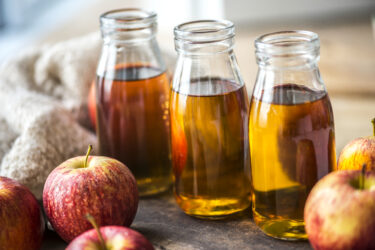
ACV is said to be one of the best natural remedies to treat severe dandruff. However, there is a prescribed way in which you need to prepare the paste. Here are some easy steps you need to know for preparing ACV for dandruff4,5.
Preparation of ACV Solution:
Note: You should not excessively use ACV on your hair; daily application is not recommended. You may find it beneficial to use it once every two days for dandruff but ensure to seek prior guidance from a dermatologist.
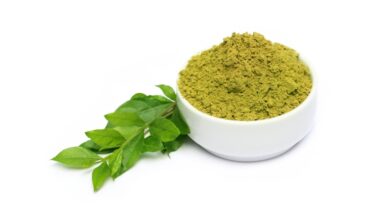
You may benefit from using henna for dandruff. Henna helps clean the scalp and softens hair. Here is how you can prepare the henna mix for your hair4.
Preparation of the Henna Mixture:
Henna needs to be prepared the right way and this mix has a prescribed manner in which it needs to be prepared so make sure you talk to a doctor before using this for your hair. A general guideline is as follows:
Note: Henna is natural and this is one simple way that may help you get rid of dandruff..
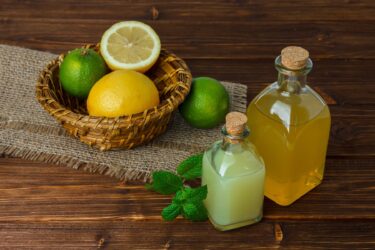
Coconut oil helps keep the hair nourished, and when this is mixed with a little lemon juice, it may help in reducing dandruff. Follow these simple tips with the advice of a dermatologist, to help with dandruff4,8.
Preparation of Coconut Oil with Lemon:
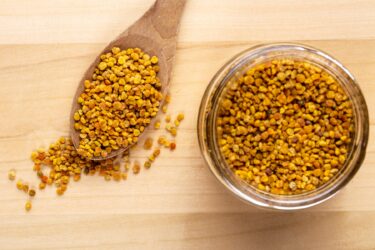
Fenugreek seeds or methi seeds are used to help reduce dandruff4,8.
Preparation of the Fenugreek Seeds Mixture:
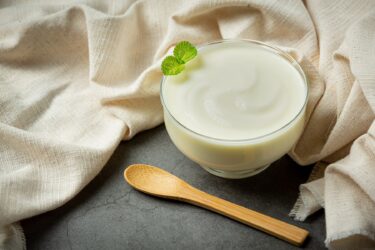
Curd applied to your hair may be effective to help with dandruff4.
Preparation of Curd for Dandruff:
Here are some easy tips to help with dandruff using curd. Here is how you do it.

Neem has beneficial properties that may help with dandruff. This herb is found in most shampoos as one of the main ingredients. If you’re seeking an effective dandruff treatment at home, incorporating neem into your routine can be a natural and convenient dandruff solution10.
Preparation of Neem Juice:
Here is how you prepare neem juice mix before applying it to your hair and this will help cure dandruff.
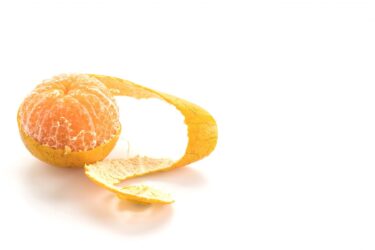
Orange peel is said to work well as a very good remedy for treating dandruff at home. But you need to keep in mind as for how you need to prepare this mix. Orange peel is said to contain calcium, magnesium, vitamin A and dietary fibres which are good for your body. Orange peel can be made as a mixture in the following manner and applied to your scalp and hair to help with dandruff4.
Preparation of the Orange Peel Mixture:
Note: Use it for least thrice a week to see results.

Vinegar has medicinal properties that can help remove fungus and this can be seen as an easy remedy to get rid of dandruff the easy way. This also helps in treating various skin related problems like acne and itchiness in the scalp4.
Preparation of the Vinegar Mixture:
Here are some easy steps that you need to keep in mind while preparing vinegar mix to get rid of dandruff.
Note: You can use this in the morning before you apply shampoo in your hair. Vinegar will help reduce the dryness and remove the itchiness that you are facing.
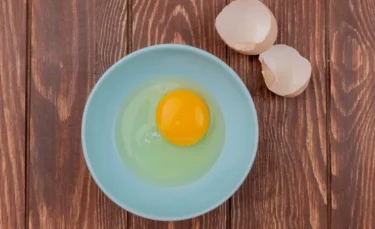
Egg yolk contains biotin which is a vitamin that helps with dandruff. Egg yolks can act as conditioners for your hair that can make it healthier9. For those seeking effective home remedies for dandruff, incorporating egg yolk into a hair care routine may provide a natural and nourishing solution.
Preparation of the Egg Yolk Mixture:
In order to prepare the egg yolk mixture, you will have to remove the white layer that surrounds the yolk. Always remember that the yolk is more beneficial than the white layer that surrounds it. Here are some simple steps that you need to follow when you are making egg yolks.
Note: You can follow this method to help with dandruff in the morning while having a bath or anytime as per your bath schedule. You may need to do this thrice a week to see results.
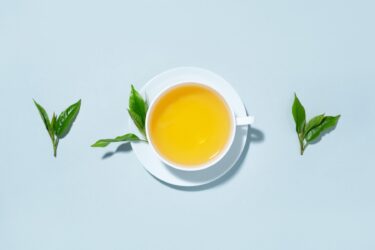
Green tea has antifungal properties and it is an antioxidant that can restore the health of the scalp7.
Preparation of Green Tea:
Note: This can be followed in the mornings when bathing.

Basil leaves have antifungal and antibacterial properties that can help with dandruff. These leaves can also help your scalp become strong and stay healthy4,8.
Preparation of the Basil Leaves Paste:
Note: You need to incorporate this to your hair care routine as recommended by a doctor to observe results.
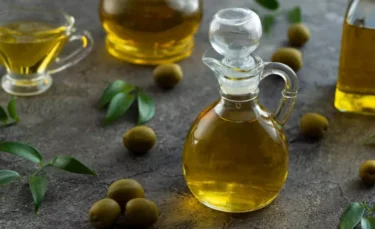
Olive oil may help strengthen the scalp, promoting overall hair health4,8.
Preparation of Olive Oil:
Note: You can also apply some olive oil before you go to bed. Wrap your hair with a towel and let it absorb overnight and wash the hair in the morning with shampoo.
Mouthwash have antifungal properties that can fight the yeast responsible for preventing the growth of this yeast8.
Preparation of the Mouthwash Solution:
Note: You can do this in the mornings during your shower.
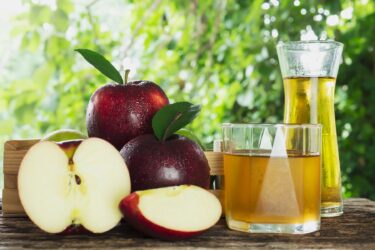
Banana and ACV may help with dandruff. This is because bananas are rich in vitamin B which helps in improving blood circulation and keeps skin healthy, while, ACV is known for its fungicidal properties4.
Preparing the Mixture of Banana with ACV:
Note: You can use this method early mornings or in the night before having your shower.
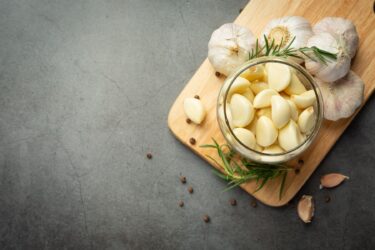
Garlic has antifungal properties that may help reduce certain microbes that are responsible for causing dandruff4.
Preparation of the Garlic Paste:
Note: You may find it helpful to use this natural method for dandruff by using it in the mornings or in the night before you have a shower.
Simple dietary modifications can play an important role in reducing the appearance of dandruff. Ensure to consult a doctor before making any changes to your diet4.
Some dietary changes include:
Getting rid of dandruff can be a burden, however, if you follow these simple steps on a day-to-day basis, you may find it helpful1.
Correct diagnosis and treatment by a dermatologist are crucial, as dandruff is often mistaken for other conditions such as psoriasis, which results from a fungal infection on the scalp. The use of appropriate antifungal shampoos or lotions recommended by a dermatologist is necessary for addressing dandruff, as home remedies alone may be inadequate.
Dr. Arpit Verma, MBBS, MD (Pharmacology)
Dandruff can be effectively managed with the right care, whether through natural remedies or medical treatment. Understanding your scalp type and the right treatment is key to long-term relief and healthier hair. Always consult a doctor before trying anything new to make sure it is right for your situation.
Yes. While often overlooked, a scalp brush can help reduce dandruff in several ways:
– Removes buildup: Helps eliminate excess oil and dead skin cells that contribute to dandruff. Use the brush in small, circular motions to avoid tangling.
– Enhances shampoo effectiveness: Using a scalp brush while shampooing can improve cleansing and product absorption.
– Stimulates the scalp: Regular use (2 to 3 times per week) can improve blood circulation, promote hair growth, and strengthen hair shafts.
Dandruff can occur at any time of the year, but it is more common during the winter months when the scalp becomes itchy and dry, and itching can lead to flakes that build up and cause dandruff. To manage it, use a moisturising shampoo 2 to times a week, oil your scalp, and avoid heat styling, which can further dry out the scalp.
No, dandruff is not contagious. It is a non-infectious scalp condition caused by factors like genetics, an oily scalp, dry skin, or sensitivity to hair care products.
Yes. Stress doesn’t directly cause dandruff but can worsen existing scalp conditions by affecting the immune system and hormone levels. Managing stress can help improve scalp health.
Dandruff does not directly cause hair loss, untreated severe dandruff may lead to scalp inflammation, which can contribute to temporary hair shedding.
Dandruff can be effectively reduced through various methods:
– Using anti-dandruff shampoos containing active ingredients like pyrithione, zinc, or ketoconazole.
– Regularly washing the hair with a gentle shampoo to keep the scalp clean.
– Managing stress levels, as stress can worsen dandruff.
– Identifying and addressing any underlying scalp conditions.
– Practising good scalp hygiene and avoiding scratching to prevent scalp irritation.
Yes, curd can help remove dandruff. Its natural properties, such as lactic acid and probiotics, help soothe the scalp, reduce itchiness, and control dandruff when applied regularly as a hair mask or treatment.
There is no direct evidence linking dandruff to acne. Dandruff is primarily a scalp condition, while acne is associated with the skin’s oil glands and hair follicles. It’s advisable to consult a dermatologist for personalised advice.
There is no scientific evidence supporting the idea that dandruff causes the premature greying of hair. Greying is primarily influenced by genetics and age-related factors, while dandruff is a scalp condition related to the overgrowth of yeast and shedding of skin cells.
No, dandruff itself does not cause lice. Lice are typically spread through direct head-to-head contact or by sharing personal items like combs and hats. While dandruff and lice both affect the scalp, they have different causes and require distinct treatments.
Yes, dandruff can cause itching. The flakes and irritation associated with dandruff can lead to an itchy scalp, causing discomfort and the urge to scratch.
1. Australia H. Dandruff [Internet]. www.healthdirect.gov.au. 2023 [cited 2025 May 5]. Available from: https://www.healthdirect.gov.au/dandruff
2. Services D of H & H. Dandruff and itching scalp [Internet]. www.betterhealth.vic.gov.au. [cited 2025 May 5]. Available from: https://www.betterhealth.vic.gov.au/health/conditionsandtreatments/dandruff-and-itching-scalp
3. (PDF) AN OVERVIEW OF DANDRUFF AND NOVEL FORMULATIONS AS A TREATMENT STRATEGY. ResearchGate [Internet]. [cited 2025 May 5]; Available from: https://www.researchgate.net/publication/322931819_AN_OVERVIEW_OF_DANDRUFF_AND_NOVEL_FORMULATIONS_AS_A_TREATMENT_STRATEGY
4. Kronika Journal – ISSN:0023-4923 || Scopus Indexed Journal [Internet]. Kronika.ac. 2023 [cited 2025 May 5]. Available from: https://kronika.ac/wp-content/uploads/5-KKJ2356.pdf
5. Staff Dermatologists org. How to Get Rid of Dandruff: An Expert Guide — Dermatologists.org [Internet]. Dermatologists.org. 2023 [cited 2025 May 5]. Available from: https://www.dermatologists.org/dandruff/
6. Zaid AN, Jaradat NA, Eid AM, Al Zabadi H, Alkaiyat A, Darwish SA. Ethnopharmacological survey of home remedies used for treatment of hair and scalp and their methods of preparation in the West Bank-Palestine. BMC Complementary and Alternative Medicine [Internet]. 2017 Jul 5 [cited 2025 May 5];17(1). Available from: https://pmc.ncbi.nlm.nih.gov/articles/PMC5499037/
7. Chanchanok Nualsri, Nattaya Lourith, Mayuree Kanlayavattanakul. Development and clinical evaluation of green tea hair tonic for greasy scalp treatment. Journal of Cosmetic Science [Internet]. 2016 May [cited 2025 May 5];67(3):161–6. Available from: https://www.researchgate.net/publication/308149951_Development_and_clinical_evaluation_of_green_tea_hair_tonic_for_greasy_scalp_treatment
8. Gamage DGND, Dharmadasa RM, Abeysinghe DC, Wijesekara RGS, Prathapasinghe GA, Someya T. Ethnopharmacological Survey on Medicinal Plants Used for Cosmetic Treatments in Traditional and Ayurveda Systems of Medicine in Sri Lanka. Ullah R, editor. Evidence-Based Complementary and Alternative Medicine [Internet]. 2021 Jun 26 [cited 2025 May 5];2021:1–15. Available from: https://pmc.ncbi.nlm.nih.gov/articles/PMC8257331/
9. Jung J, Kwon KH. Rethinking of positive effects of eggs on hair in East Asia. Journal of Cosmetic Dermatology [Internet]. 2022 Nov 14 [cited 2025 May 5]; Available from: https://www.researchgate.net/publication/364366473_Rethinking_of_Positive_Effects_of_Eggs_on_Hair_in_East_Asia_A_Critical_Review
10. Sang SH, Gabriel Akyirem Akuwoah, Kai Bin Liew, Lee SK, Keng JW, Lee SK, et al. Natural alternatives from your garden for hair care: Revisiting the benefits of tropical herbs. Heliyon [Internet]. 2023 Nov 1 [cited 2025 May 5];9(11):e21876–6. Available from: https://www.ncbi.nlm.nih.gov/pmc/articles/PMC10685248/#:~:text=In%20recent%20years%2C%20there%20is
Disclaimer: The information provided here is for educational/awareness purposes only and is not intended to be a substitute for medical treatment by a healthcare professional and should not be relied upon to diagnose or treat any medical condition. The reader should consult a registered medical practitioner to determine the appropriateness of the information and before consuming any medication. PharmEasy does not provide any guarantee or warranty (express or implied) regarding the accuracy, adequacy, completeness, legality, reliability or usefulness of the information; and disclaims any liability arising thereof.
Many people suffer from fungal infections at least once in their lives. Poor hygiene, humidity and a warm climate are possible causes of fungal infections. Athlete’s foot, jock itch, and oral thrush are some common fungal infections affecting different parts of the body that may even occur repeatedly if you are prone to developing them. While over-the-counter medicines and antifungal creams are readily available in the market, a lot of fungi that cause these infections are already becoming resistant to some medications.
The good news is that most fungal infections respond well to certain home remedies and with increasing number of people looking for natural ways to deal with these infections nowadays, these simple methods can be of huge help. So, we’ve compiled a list of some commonly available home remedies that may help deal with fungal infections naturally, let us take a look at these in this blog. We’ll also discuss about the causes, symptoms and risk factors for fungal infection to help you manage this condition better.
Here are some common factors which make you susceptible to developing fungal infections:
Of millions of fungi species, only roughly 300 infect humans in any significant way. Here are a few common fungal infections and their causes1.
This infection presents as ring-shaped rashes on the body and limbs, causing itchiness. It is caused by fungi such as Microsporum, Trichophyton, Epidermophyton, and up to 40 other species.
Similar to ringworm, athlete’s foot affects the feet, especially between the toes. It is characterized by red, scaly skin and is caused by fungi from the Dermatophyte group.
Common in men, jock itch occurs in the groin and thigh area. It appears as a red rash with itchiness that may worsen with exercise, and the skin may have a scaly appearance. This infection is also caused by the Dermatophyte group of fungi.
This infection affects the scalp and hair shafts, often seen in children. It can cause bald patches along with redness, tenderness, and sometimes pain. It is caused by fungi from the Dermatophyte group.
This condition is triggered by an overgrowth of Malassezia yeast, which is normally present on healthy skin. It results in oval patches on the skin, particularly on the chest, back, and arms, which are lighter or darker than the surrounding skin.
This infection occurs under the fingernails and toenails, leading to discolored and brittle nails, with an increase in nail thickness. It is primarily caused by Trichophyton, though many fingernail infections are due to Candida, a yeast-type fungus.
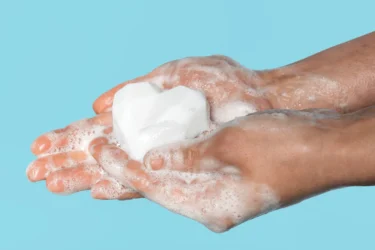
Ensure to clean the affected area with soap and water twice daily before you apply any home remedies or any other medication. This will control the spread of infection. While soap and water may not always be able to eliminate a fungal infection entirely, it helps to keep the spread down and lower the intensity of the infection.
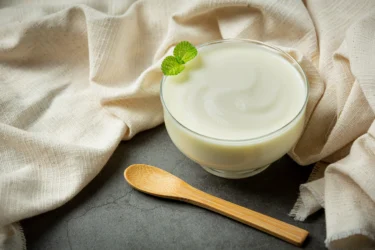
Yoghurt and other probiotics have an ample amount of good bacteria that help stave off many fungal infections. These fight off microbes that cause these infections2.
Fermented foods are another excellent source of probiotics. If these are not helping, you could use probiotic supplements that have more concentrated dosages of good bacteria. When considering supplements, its best to discuss with your doctor to understand the right type and dosage for your needs.
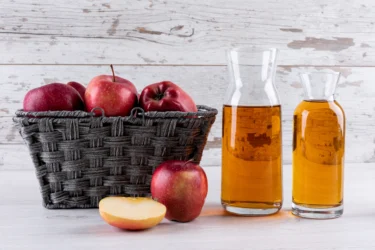
Apple cider vinegar is believed to have antifungal properties. You could mix two tablespoons in warm water and drink it up or dip a cotton ball in it and dab over your skin. Doing this thrice a day should produce beneficial results3.
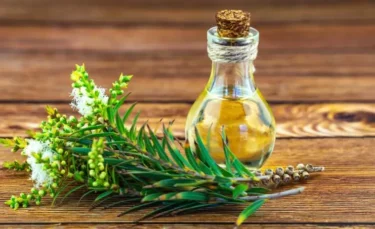
Tea tree oil is naturally antifungal and antibacterial. Mix it with any carrier oil like coconut oil or olive oil and dab over the infected area about three to four times a day. This can be an effective home remedy to treat fungal infections4.

In its unheated form, even coconut oil can work as a potent antifungal agent. Applying it over the skin makes it a good, safe topical medicine. Since it is easy on the skin, it is also useful to manage scalp ringworm. Using it over the skin three times a day, can show positive results.
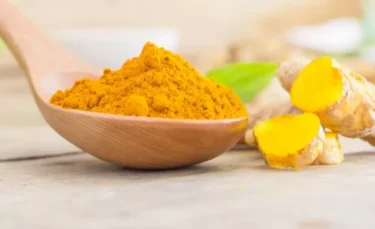
Turmeric is a potent antimicrobial and anti-inflammatory spice. Mix with a little water and apply over the infected area. This is one of the easiest home remedies for fungal infection as turmeric is present in all Indian kitchens across households. To get more health benefits out of turmeric, you can mix it with warm water, or have turmeric tea5.
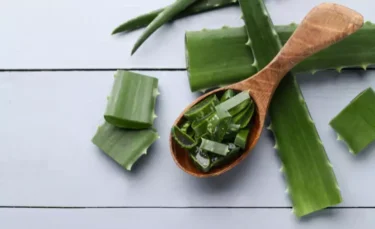
One of the most time-tested natural remedies to manage any skin infection is aloe vera. It not only help deal with the infection but also soothes and repairs skin damage5.
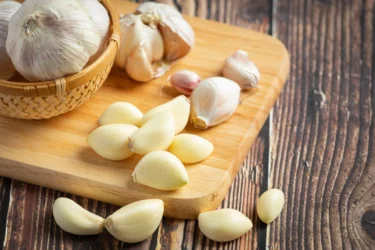
Garlic is one of the most potent antifungal and antimicrobial herbs. Those who eat garlic regularly are less susceptible to fungal infections. Crush a couple of garlic with some olive oil and make a paste. Apply to the infected area for about thirty minutes to soak in the benefits 5.
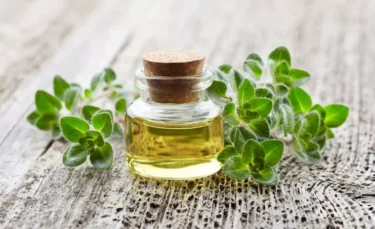
Another active antifungal agent is oregano oil. Mix a few drops with any carrier oil and dab on the affected area. You could also take oregano oil capsules orally, but discuss with a healthcare provider before consuming, especially if you have any medical conditions6.
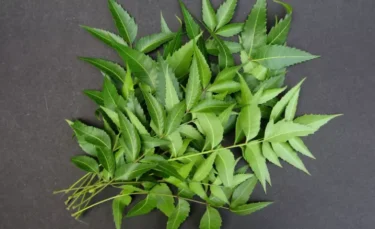
Neem leaves have effective antifungal properties and can be great for the skin. Washing the infected area with neem water helps in reducing fungal infections. To make neem water, boil neem leaves in water for 2 to 3 minutes5.

Vitamin C boosts our immune system. It protects our body from various infections. A good immune system also helps to treat fungal infections faster. Food sources rich in vitamin C include citrus fruits like lemons and oranges and vegetables like bell peppers and brocolli7.
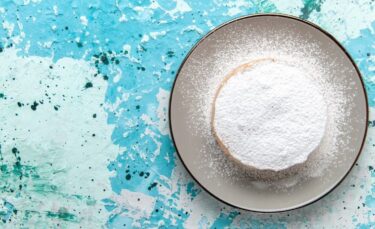
Baking soda can be useful in healing fungal infections like athlete’s foot. Applying baking soda powder on feet and the inside of shoes helps to absorb moisture and sweat. It thus avoids the infection from spreading8.
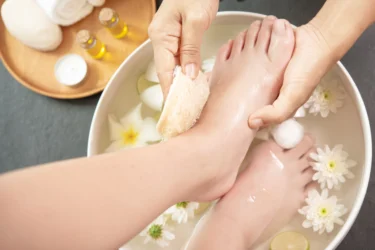
Hydrogen Peroxide also helps to heal Athlete’s Foot. Soaking feet in a solution made using equal parts of water and hydrogen peroxide can effectively destroy the fungus causing athletes’ feet9.
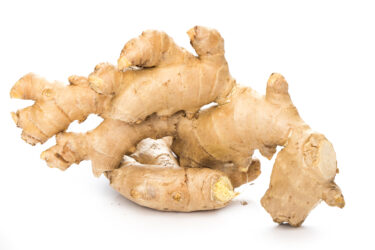
Gingerol present in ginger has potent antifungal properties. Adding ginger to our diet in the form of ginger tea effectively helps in managing fungal infections like Candida and even avoids their chances of occurrence5.
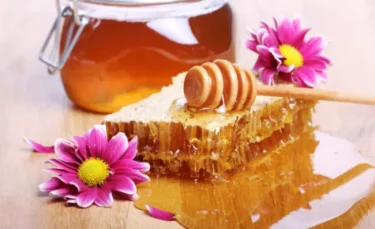
Using honey is also one of the easiest home remedies for dealing with fungal infections. It is anti-inflammatory and can also be effective in killing fungus and bacteria which are responsible for causing skin infections. Applying raw honey to the affected region is the best solution as it is loaded with healing properties.
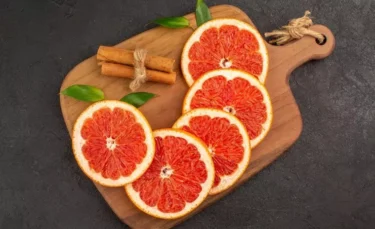
Initial research10 has shown that grapefruit seeds extract has the healing power to treat fungal infections. It is especially found to be effective in oral candidiasis. To use these, mix a drop of the seed extract with a few drops of water and apply to the affected spot(s) twice a day.
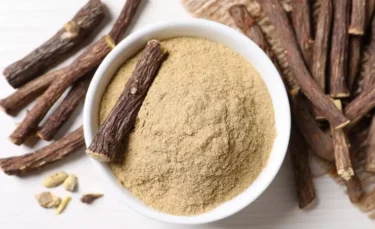
Licorice is naturally bestowed with anti-inflammatory and anti-microbial properties and is therefore perfect to take care of fungal infections. To use it, add powdered licorice to a cup of water and bring it to a boil. Let it simmer for a few minutes. Once it gets a paste-like consistency, let it cool and apply the mixture to the affected skin twice a day11.
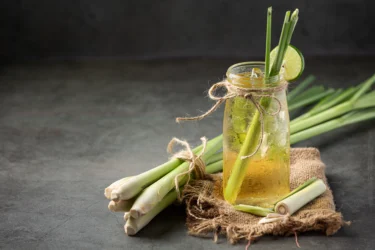
Lemongrass is also laden with anti-microbial properties so you can easily use it to deal with fungal infections as one of the home remedies. You need to mix lemongrass oil with a carrier oil and dab it on the affected region with a cotton ball or swab two times a day6!
Dermatophytes which cause fungal infections have become very resistant to common antifungal drugs these days (due to the injudicious use of these drugs), I have observed many patients taking antifungal drugs for a longer period without getting benefits, therefore, one should be visiting his physician whenever they are suffering from fungal infections rather than self-medicating themselves with medicines for a longer period of time which could cause serious side effects.
Dr. Nikhil Yadav, MBBS MD,CCEBDM
Although studies have shown potential antifungal properties of these products, further large-scale trials are needed to confirm these. Remember, these remedies have to be followed regularly to achieve the desired results. Also, check for allergies to these before using them. And if there is no improvement with these home remedies, seek out medical attention for further treatment.
Also Read: Easy Home Remedies for Wart Removal
You must consult a doctor if even after following home remedies, there is no improvement. Also, in some cases, prompt medical attention is required. These include:
The fact is, most fungal infections are easily curable with proper treatment, you may not even be aware you have a fungal infection. Self-examination goes a long way in identifying fungal infections early, especially if there are no other symptoms like itching or irritation.
Also Read: How HPV Can Lead to Cancers
Yes, fungal infections may occur during humidity. The fungi that cause this condition thrive in a wet environment, particularly skin, nails, and shoes. Even a little bit of sweat can lead to fungal infections so you must keep your skin clean and dry.
Some fungal infections can be contagious. They can spread from one person to another, which is why as soon as you develop signs or symptoms of a fungal infection, you must consult a doctor.
Yes, stress can weaken the immune system, making the body more susceptible to fungal infections like candidiasis and athlete’s foot. Additionally, stress may disrupt the balance of microorganisms on the skin and in the body, creating an environment conducive to fungal overgrowth.
Yes, fungal infections can make you sick, causing a range of symptoms depending on the type and severity of the infection. Common symptoms include fever, cough, skin rashes, fatigue, and respiratory issues. Seeking medical treatment is crucial to manage fungal infections effectively and prevent complications.
Yes, fungal infections can spread through direct contact with an infected person or object, as well as through airborne fungal spores. If left untreated, fungal infections can potentially spread to other parts of the body or to other individuals. Proper hygiene and timely treatment are essential to prevent the spread of fungal infections.
Fungal infections typically don’t cause lumps directly, but they can lead to inflammatory responses in the body that may result in swelling or nodules in affected areas. If a lump appears in conjunction with other symptoms of a fungal infection, it’s essential to seek medical evaluation for proper diagnosis and treatment.
Fungal infections can trigger allergic reactions in some individuals, particularly those with sensitivities to fungal spores or proteins. Symptoms may include respiratory issues like sneezing, coughing, or wheezing, as well as skin irritation or hives. Proper identification and treatment of fungal infections are essential to manage associated allergies effectively.
Using saltwater can help with fungal infections on the skin or nails because it has cleansing properties and can help dry out the affected area. But if the infection is severe or doesn’t improve, it’s best to see a doctor for proper treatment.
Vitamin C may support the immune system, which can help in combating fungal infections, but it’s not a direct treatment. Incorporating vitamin C-rich foods like citrus fruits and vegetables into your diet may aid overall health and immune function, potentially assisting in the body’s ability to fight off fungal infections. However, consult a healthcare professional for proper diagnosis and treatment of fungal infections.
Sun exposure can help in managing certain fungal infections, as sunlight has antifungal properties and can inhibit fungal growth. However, excessive sun exposure can also aggravate skin conditions, so it’s essential to balance sunlight exposure with proper sun protection measures and consult a healthcare professional for personalized advice on managing fungal infections.
Yes, fungal infections can cause itching, which is a common symptom, especially in conditions like athlete’s foot, jock itch, or ringworm. Itching is often accompanied by other symptoms like redness, rash, or flaking of the skin. Proper diagnosis and treatment are essential to alleviate symptoms and prevent the spread of fungal infections.
Disclaimer: The information provided here is for educational/awareness purposes only and is not intended to be a substitute for medical treatment by a healthcare professional and should not be relied upon to diagnose or treat any medical condition. The reader should consult a registered medical practitioner to determine the appropriateness of the information and before consuming any medication. PharmEasy does not provide any guarantee or warranty (express or implied) regarding the accuracy, adequacy, completeness, legality, reliability or usefulness of the information; and disclaims any liability arising thereof.
We all complain about dryness of the throat from time to time. A dry throat can be a result of a variety of health conditions, like allergic rhinitis (inflammation/swelling of the lining of the nose due to allergy), common cold, flu (influenza), tonsillitis (inflammation of the tonsils), sore throat (a viral or bacterial infection of the throat) strep throat, (bacterial infection of the throat) and fever. A dry throat can also be irritating and dry. Probable treatment depends upon the cause of your dry throat.
Did you know?
The feeling of dryness in your throat can be caused due to the following reasons:
A dry throat can be caused due to a viral or bacterial infection. Viral and bacterial dry throat have different symptoms depending on the pathogen responsible. A dry throat can make swallowing painful. Itcan also be irritating and dry. It could be a symptom of strep throat, a regular cold, allergies, or any other upper respiratory tract infection1.
Allergic rhinitis is a group of symptoms that affect the nose. It is also called hay fever but is not caused by hay exposure, and it does not induce fever, contrary to what some people may think. Allergic rhinitis causes runny nose, sneezing, and itchy eyes2.
Common colds and flu are infections of the nose, throat, mouth, and lungs. They are caused by viruses. Cold and flu share many symptoms, but cold symptoms are milder and develop more slowly than flu symptoms.
Tonsillitis (lumps of tissue at the back of the throat). Tonsillitis is usually caused by a viral infection. However, bacterial infections like strep throat can also lead to tonsillitis3.
Dehydration is defined as a lack of adequate water in the body. Dehydration can happen if you don’t drink enough water or lose a lot of water quickly. Our bodies don’t produce enough saliva to wet our throats when dehydrated, resulting in a dry throat4.
A dry throat can lead to irritation and anxiety, many covid patients reported with the symptom of a dry throat, so home remedies might help initially. What I observed was a dry throat feeling waned off gradually, even without any intervention.
Dr. Nikhil Yadav, MBBS MD,CCEBDM
The conditions that cause a dry throat may also cause other symptoms, which vary depending on the cause. The symptoms are:
Home remedies to manage dry throat:

Saltwater6 helps manage dry throat due to its ability to kill bacteria. It also helps to release mucus and relieve discomfort. Salt can be mixed with warm water and used for gargling.

You can mix honey in warm water or tea and stir it well. Drink it several times a day or as and when required. Honey7 has natural antibacterial properties because it is effective in healing wounds, reducing inflammation, and providing pain relief.
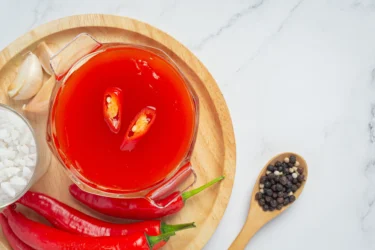
Hot sauce is made using peppers. These peppers help manage inflammation and provide pain relief. A little amount of hot sauce in warm water can be taken as and when required.
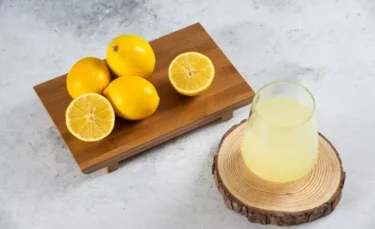
Lemon juice with warm water can be taken several times a day or as and when required. Like saltwater and honey, lemon juice is good for dry throats because it can help break up mucus and provide pain relief. Furthermore, lemon juice8 is high in vitamin C, which can help to boost the immune system and give it more strength to fight off your infection.
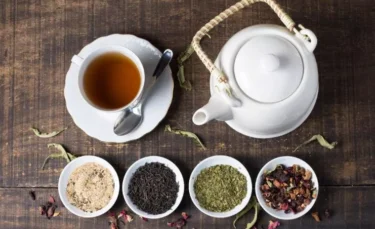

Dry air during winter can cause dry throat. A humidifier can help keep the air moist and provide additional relief11.

Sipping on warm fluids like tea and soups or taking cold liquids like ice water and popsicles soothe the throat. You can try both warm and cold to see what works best for you. Drinking liquids aids in clearing the passage, keeping things flowing, and preventing sinus infections.

You should put your head on a pillow and go to bed early. Physical rest for the body and voice can be beneficial to the throat. On the other hand, lying flat can cause swelling due to an increase in pressure at the back of your throat. To relieve pain and discomfort, try elevating the bed or sitting supported or in a chair instead.
Also Read: Natural Home Remedies for Diabetes By Dr. Rajeev Singh
You should seek medical help if you notice the following:
Also Read: Influenza B: What is It, Causes, Symptoms, Treatment & Prevention
A dry throat can have an underlying cause, probably an associated health condition. It is important to know the cause of dry throat to treat it. There are several at-home remedies that require some commonly found ingredients from the kitchen, which can help soothe a dry throat. But if your symptoms worsen, or present with any other health complications, seek immediate medical help.
A dry throat is a symptom of various conditions that make the throat feel dry and irritated. It can be a symptom of strep throat, the common cold, allergies, or other upper respiratory tract illnesses.
Drinking honey water, lemon water, gargling with salt water, and steam inhalation are some of the home remedies for dry throat. There are some herbal teas that you can use to manage dry throat. These include green tea, chamomile tea, peppermint tea, clove tea, and raspberry tea.
You can try drinking more water to get instant relief from a dry throat.
No, dry throat and sore throat are not the same. A dry throat is a symptom of a sore throat. Sore throat is the result of infection (either bacterial or viral). A sore throat can cause a feeling of dryness in the throat.
Disclaimer: The information provided here is for educational/awareness purposes only and is not intended to be a substitute for medical treatment by a healthcare professional and should not be relied upon to diagnose or treat any medical condition. The reader should consult a registered medical practitioner to determine the appropriateness of the information before consuming any medication. PharmEasy does not provide any guarantee or warranty (express or implied) regarding the accuracy, adequacy, completeness, legality, reliability, or usefulness of the information; and disclaims any liability arising thereof.
Vomiting (throwing up) is the forceful emission of substances from the upper digestive system and stomach through the mouth. It is a reflex of the body to remove substances that might be harmful to the body1. Vomiting occurs when the stomach muscle walls contract and push a large volume of stomach substances upward that flows back into the throat and exits via the mouth or nose.
Vomiting is very common among babies and is not a huge issue to worry about; still, it can be severe if it causes too much loss of fluids, leading to dehydration in the baby. If the baby throws up immediately after eating, it is a severe issue2.
There are several causes of vomiting categorised as acute and chronic.
A few causes of sudden vomiting are severe, but the most common cause is viral gastroenteritis (infection of the digestive tract), which mostly goes away within 2 days without any specific treatment.
The conditions that can cause acute vomiting include5:
Functional vomiting and nausea (has no clear medical cause)
Vomiting is associated with a forceful contraction of the stomach muscles. Other symptoms that you may feel along with vomiting or that are associated with vomiting include7:
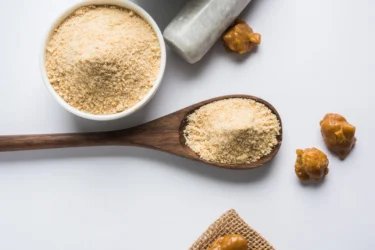
Asafoetida is helpful for digestion and can reduce the symptoms of vomiting and diarrhoea8. You can use a small amount of asafoetida powder, put it in a glass of warm water, and mix well. A small amount of asafoetida can be added to curry powder and daily foods to prevent vomiting and other digestive problems.
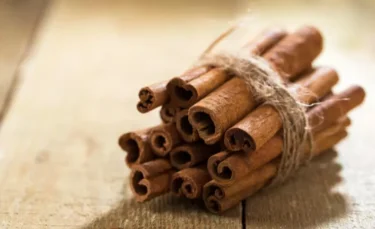
Cinnamon has a pleasant aroma and is considered one of the best choices for dealing with vomiting and nausea. For better results, cinnamon tea can be made2.
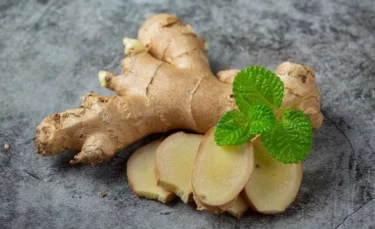
The root of ginger is used to manage a few stomach-related disorders, including vomiting. It is considered one of the most effective natural herbal remedies for vomiting2. Taking ginger tea or chewing ginger pieces can be beneficial for vomiting3.

Chamomile is widely used in various cultures to manage stomach-related conditions2. It relaxes the digestive system and manages conditions like vomiting, nausea, indigestion, flatulence (gas), motion sickness, and anorexia (loss of appetite). Chamomile tea can be used to obtain its benefits4.
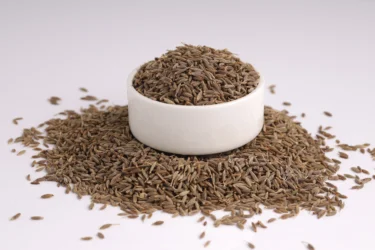
The powder and seeds of cumin are used to relieve nausea and vomiting. You can prepare cumin tea to prevent vomiting. You can take a few cumin seeds in a glass of water, let them mix, and then strain it; the solution obtained is cumin tea2.
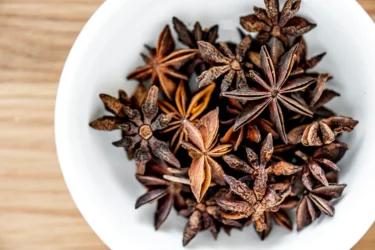
Anise tea can be helpful in dealing with nausea9. You can rub the anise seeds or pour a few anise seeds into boiling water and drink the tea.
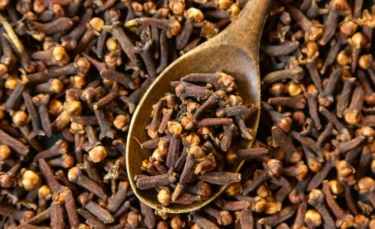
You can carry along a few clove flowers while travelling, and whenever you feel nauseous, you can eat a little clove to get rid of nausea10.
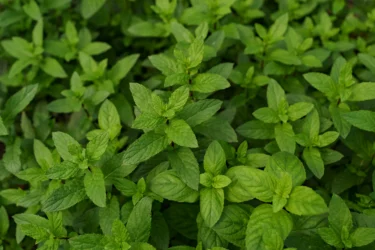
Peppermint soothes the stomach and is also one of the famous home remedies for vomiting11. It quickly reduces vomiting and nausea. You can inhale peppermint aroma for better results.
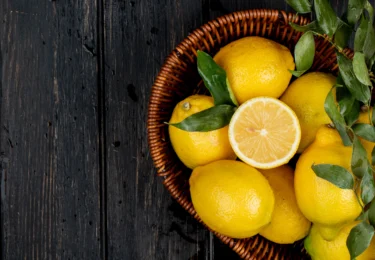
Lemon is known to manage vomiting and nausea. You can cut small pieces of lemon and keep them nearby so that their aroma can exhibit its beneficial effect2.
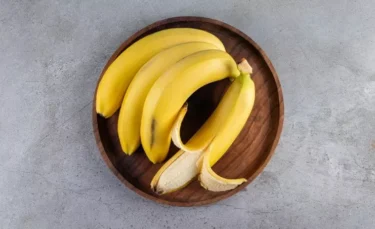
Banana, both raw and ripe, can be used for managing vomiting and diarrhoea. It also contains magnesium and potassium, which are required for the proper functioning of the digestive tract12.

Lavender can reduce vomiting and nausea. It also controls fat digestion in the body. You can inhale lavender oil or put it in water and immerse yourself in it2.

Onion is one of the best home remedies for vomiting. The juice of an onion can be used to deal with vomiting2.
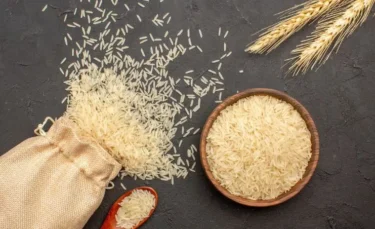
After boiling rice for a long time, the liquid obtained can be concentrated. Dilute the concentrated liquid with a little water. This diluted liquid can be drunk hot or after cooling. It can surprisingly relieve vomiting or nausea2.
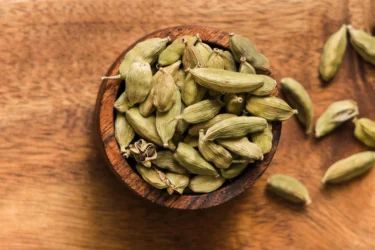
Cardamom is an aromatic seed and is known as one of the best home remedies for vomiting2. Cardamom oil can be inhaled to relieve nausea.
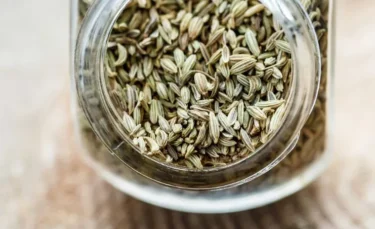
Fennel contains several bioactive compounds that help the stomach muscles and are helpful for nausea, bloating, and flatulence (gas)2. The powder of fennel can be used to get rid of vomiting6.
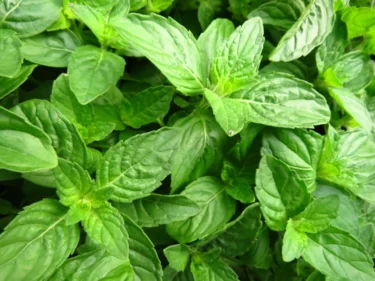
Basil has anti-spasmodic (relieves spasms of involuntary muscles) properties and is suitable for dealing with vomiting and diarrhoea2. You can drink basil tea to get rid of vomiting.
Also Read: Simple Tips You Can Follow for Heartburn Relief!
Usually, vomiting and nausea are not severe and are common. However, you should seek medical help if you have:
Also Read: Pneumonia Diet: What to Eat & Avoid During Recovery
Vomiting is the strong release of substances from the upper digestive tract and stomach through the mouth. Several home remedies like ginger, cumin, lemon, and basil can help you get rid of vomiting. Usually, vomiting and nausea are not severe and are common, but if your vomiting does not stop or causes other severe health effects, you must seek medical help.
Also Read: Natural Home Remedies For Stomach Ulcers
If you notice blood in your vomit, you should immediately seek medical help as it may indicate a serious condition.
Yes, ginger can be helpful to stop vomiting. The root of ginger is used to treat a few stomach-related disorders. Consuming ginger in the form of ginger tea or chewing ginger pieces can be beneficial for vomiting.
Yes, the fennel powder can be used to get rid of vomiting. Fennel contains several bioactive compounds that help the stomach muscles and are helpful for nausea, bloating, and flatulence (gas).
Yes, lemon is known to manage vomiting and nausea. The smell of lemon might help to stop vomiting.
Yes, the seeds and powder of cumin are well-known for managing vomiting and nausea. You can take cumin tea to prevent vomiting.
Yes, cinnamon has a pleasant aroma and is considered beneficial for dealing with vomiting and nausea. You can drink cinnamon tea to manage vomiting.
Disclaimer: The information provided here is for educational/awareness purposes only and is not intended to be a substitute for medical treatment by a healthcare professional and should not be relied upon to diagnose or treat any medical condition. The reader should consult a registered medical practitioner to determine the appropriateness of the information and before consuming any medication. PharmEasy does not provide any guarantee or warranty (express or implied) regarding the accuracy, adequacy, completeness, legality, reliability or usefulness of the information; and disclaims any liability arising thereof.
Being a foodie is common among Indians and so are digestive issues. Indigestion, gas, bloating, hiccups, heartburn, stomach pain, ulcers, and nausea are some of the common features of digestive problems. These are the frequent problems arising from an unhealthy lifestyle, which includes binge eating, smoking, drinking alcohol, sleep disorders, eating junk, and stress.
The discomfort makes these problems hard to ignore, but it is also not convenient to visit the doctor or pharmacy so frequently for the recurring problems.
While some medical conditions may lead to digestive issues, some of the most common causes of digestive issues include lifestyle factors like stress, excessive dairy consumption, an inactive lifestyle, and inadequate fibre in the diet.
Gastrointestinal problems are commonly caused by:
Foods That May Cause Digestive Problems: Carbonated drinks, beans, artificial sweeteners, potatoes, pasta, eating or drinking too fast, using a straw, and swallowing excessively.
Diseases That May Cause Digestive Problems: Lactose allergy, gluten allergy, irritable bowel syndrome (IBS), Crohn’s disease, gastroesophageal reflux disease (GERD), and peptic ulcers.
Frequent episodes of digestive troubles can be attributed to various factors such as IBS, infection, neurological issues, or hormonal imbalances. Often, these symptoms are intertwined with signs of anxiety.
Dr. Arpit Verma, MBBS, MD (Pharmacology)
The symptoms of digestive problems are usually mild and short-lived and may not require medication; however, there are some simple home remedies that can help you reduce the symptoms. So, here are some home remedies that may relieve your digestive problems.

A lot can happen with a cup of tea. Although, targeting the root cause of your digestive problems is the best approach, if you need relief for minor stomach issues and temporary bouts of discomfort, then here is a warm cup of tea that may save your day.
You can prepare these teas by brewing one or more herbs commonly found in the kitchen, as listed below. You may also add honey to some of the teas.
Other ingredients, such as ajwain (carom seeds), caraway (shahi jeera), liquorice (mulethi), and holy basil (tulsi) can also be brewed along with ginger to help ease digestive issues like indigestion, gas, bloating, cramps and nausea.
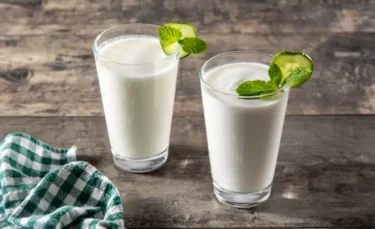
Some other drinks that may relieve digestive issues include:
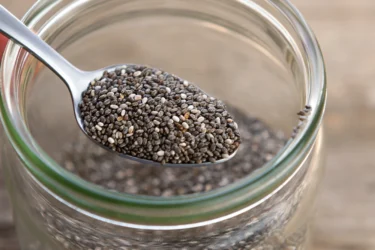
Mucilage is a slimy and slippery substance found in certain plants. The mucilaginous substance swells in water and is bland in taste. When consumed, it forms a protective layer over the inflamed lining or sore surface of the stomach that not only protects it from further damage by acid but also aids in its healing. Few examples are listed below:
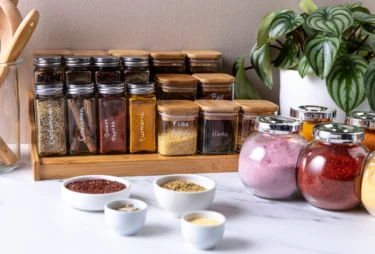
People with an upset stomach, gas, acidity, heartburn and other digestive troubles may also get relief by directly consuming powders of ingredients from the kitchen, such as fennel seeds, carrom, caraway, and coriander. Few examples are listed below:

In cases, where one cannot drink or do not feel like consuming anything, the following approach may benefit in relieving the symptoms of digestive trouble.
Also Read: Causes Behind Recurring Stomach Pain
Here are a few remedies you can try apart from the ones mentioned above:
If a person has recurrent gastritis, then along with using home remedies, they should definitely visit their physician who can give them a treatment regimen for the bacteria Helicobacter pylori (one of the causes of gastritis).
Dr. Nikhil Yadav, MBBS MD,CCEBDM
As mentioned in the beginning, digestive issues are caused by a variety of dietary and lifestyle choices. The discomfort and pain of digestive problems may be mitigated by simply cutting out these harmful factors from your life. Limiting the intake of or quitting coffee, soft drinks, alcohol, tobacco, smoking, and excessive junk foods will go a long way towards curtailing the risk of stomach-related health conditions.
Healthy habits like eating regularly, avoiding binge eating, sleeping regularly, and getting some form of physical exercise daily can further lower your chances of developing a digestive problem in the long term. Stay away from foods that are hard to digest as well as acidic foods like lime and baking soda.
It should be noted that some people may experience digestive issues like GERD or other serious gastrointestinal conditions despite maintaining a healthy lifestyle. This may be unavoidable and the only solution is to seek professional medical treatment. The above-mentioned home remedies may provide relief from occasional bouts of gas and other symptoms of digestive troubles. However, if they fail to provide, relief then one must seek medical help immediately.
Also Read: Natural Home Remedies for Food Poisoning
Some common symptoms of GERD include heartburn, chest pain, difficulty swallowing, and regurgitation of food or sour liquid. It may also cause chronic cough, disrupt sleep, or worsen asthma if you have acidity at night-time.
One should seek immediate medical care if he or she experiences chest pain, shortness of breath or jaw or arm pain. If you experience severe or frequent GERD symptoms and take over-the-counter medications frequently or if home remedies are not working for you, you must consult a doctor.
Yes, smoking contributes to many common disorders of the digestive system, such as heartburn and GERD.
Disclaimer: The information provided here is for educational/awareness purposes only and is not intended to be a substitute for medical treatment by a healthcare professional and should not be relied upon to diagnose or treat any medical condition. The reader should consult a registered medical practitioner to determine the appropriateness of the information and before consuming any medication. PharmEasy does not provide any guarantee or warranty (express or implied) regarding the accuracy, adequacy, completeness, legality, reliability or usefulness of the information; and disclaims any liability arising thereof.
Next Page »« Previous Page